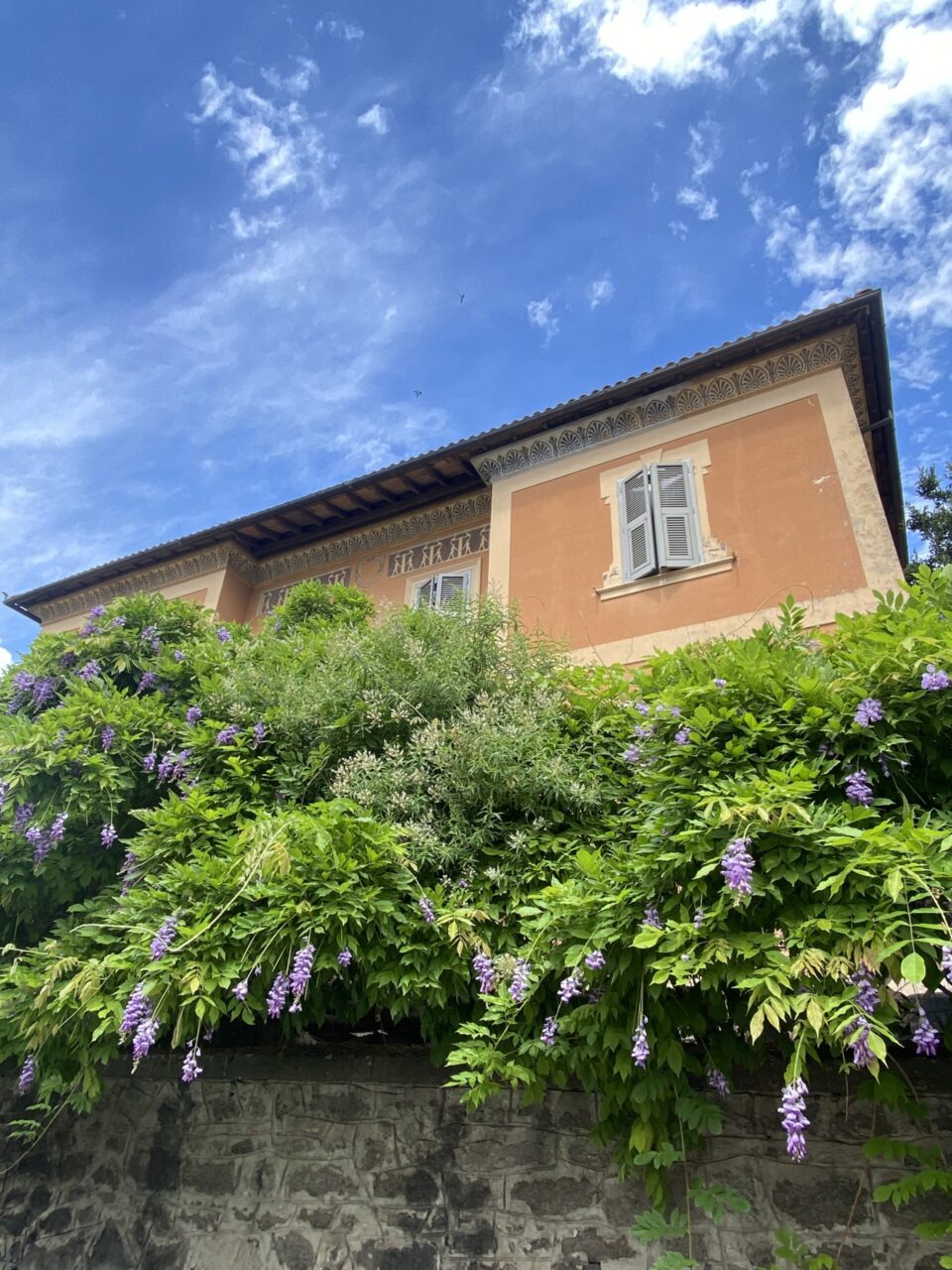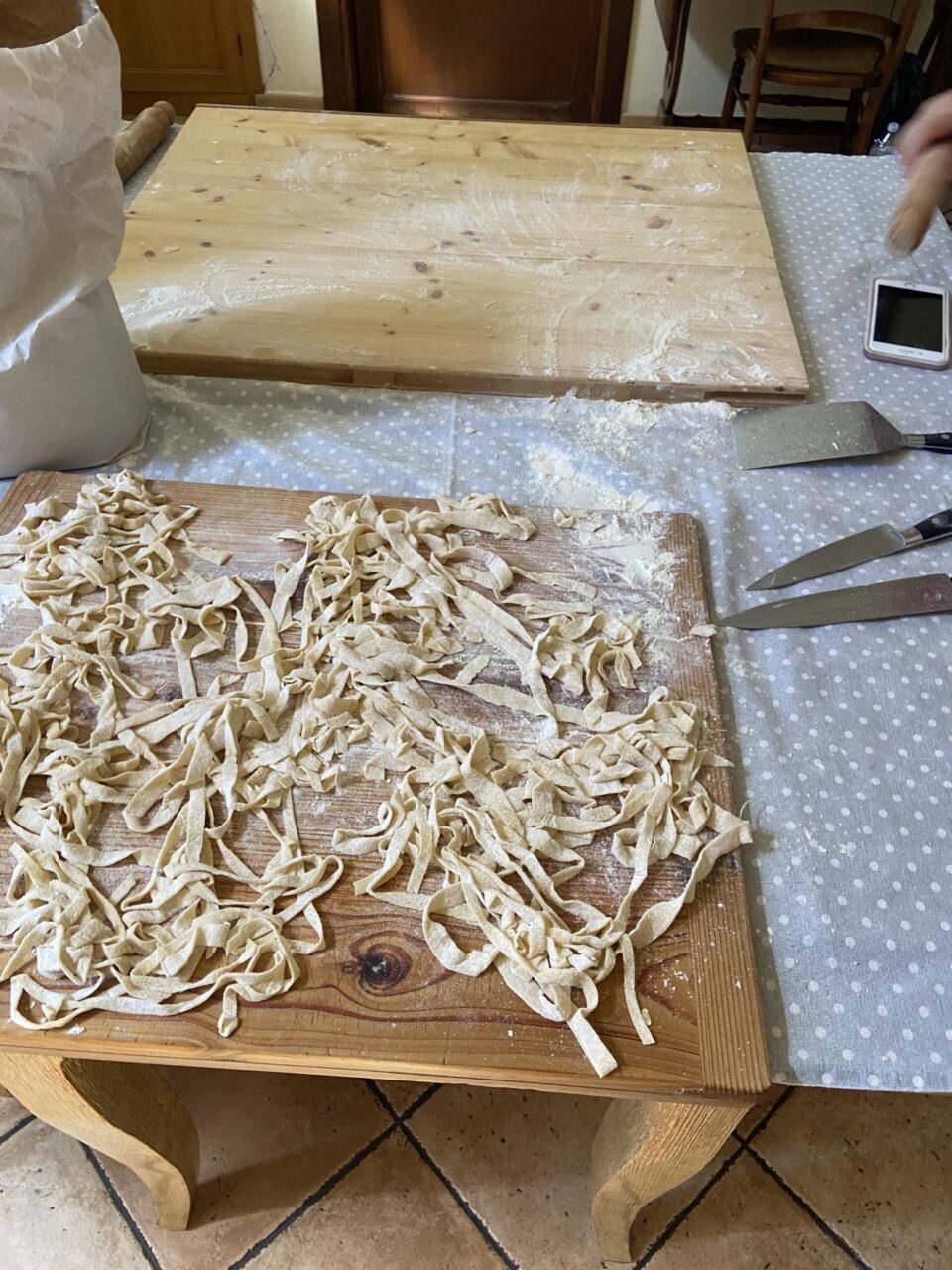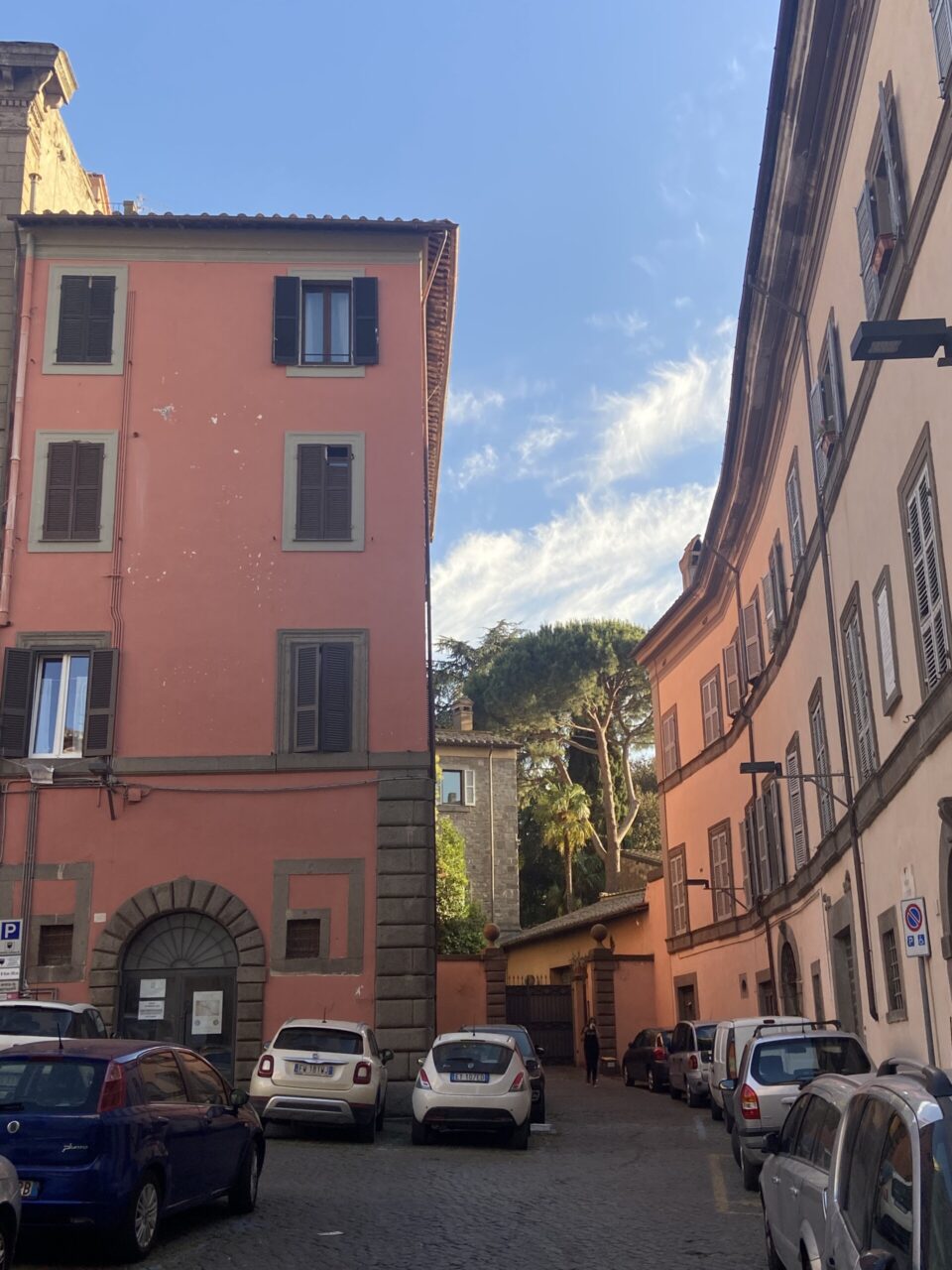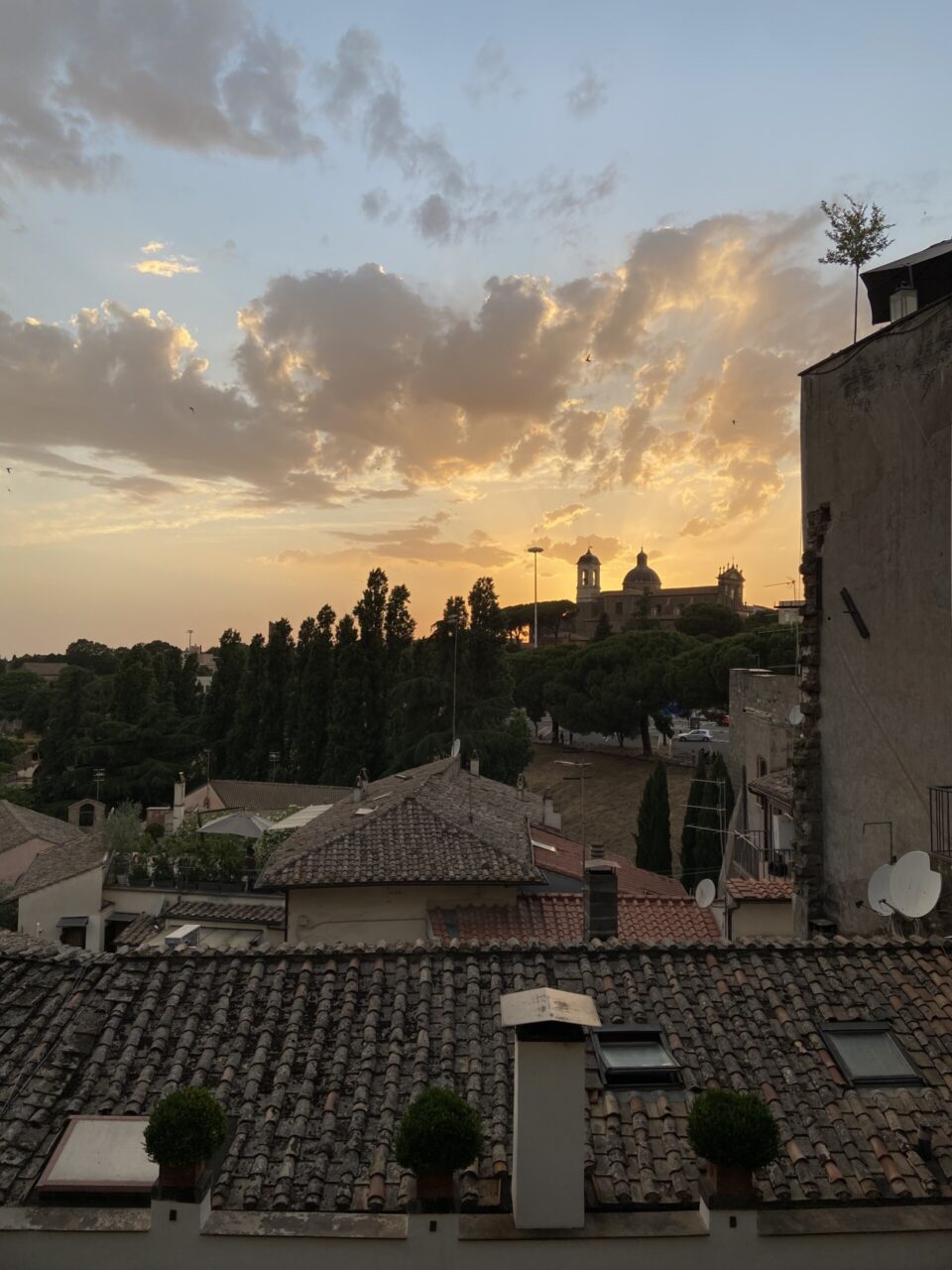Viterbo is a quintessential Italian small town. Still boasting its medieval walls and Etruscan tombs, from first glance, Viterbo clearly marks itself to visitors as the charming city you will soon discover it to be. There is not much information to be found online by way of Viterbo, you can find a general amount of information about the Papal Palace and the Etruscan walkways, but there is much still to be uncovered about the town that cannot be found through a google search or an essay (even this essay).
I decided to study abroad in Italy because I have studied Latin for seven years and wanted to be able to explore the places where great emperors gave speeches I had read and translated and walk the same streets that the Romans paved. As far as choosing Viterbo specifically, I considered things such as cost, classes, and geography, and Viterbo was the city that worked best for my preference in all three regards. However, I arrived in Viterbo jet-lagged and confused and found myself utterly unprepared. In researching Viterbo, I neglected to consider if English was widely spoken, and–reader, I think you can guess where I’m going with this–when I got there, I realized very quickly that very few Viterbese–Italian for someone or something from Viterbo–people actually spoke English. I felt completely overwhelmed as I had absolutely zero experience with Italian; however, as I began to learn Italian through total immersion and my Italian language class, I realized that this experience wouldn’t be as overwhelming as I initially feared. My experience learning Latin helped me tremendously, but what made me feel more confident was the Viterbese themselves.





Always laid back and accommodating, the Viterbese are thrilled to share their culture even if your communication may consist mainly of google translate and speaking with your hands. Italian is an emotional language and Italians view the hands and body as an extension of the language, what might feel to you like an embarrassing last-ditch attempt at non-verbal communication is an integral concept of communication to Italians.
During my summer in Viterbo, I gained a greater understanding of Italian culture and myself as I saw myself attempting to assimilate to a culture so wildly different from my own. A benefit of spending the entire summer in Viterbo is that I was able to establish not only a routine, but I was also able to make friends with locals, all while traveling during most weekends without feeling like I did not know Viterbo. Befriending locals was one of the best experiences in Viterbo, I had a “regular” order at the cafe by school so that Valentina would have my caffè e cornetto cioccolato waiting for me when I walked in the door of Cafe Gradi each morning, Manfreddi, the bartender at my favorite bar, Al Settantasette, was able to make cocktails he knew I would like without asking, and Giorgina knew what pizza I wanted da portare via on Sunday evenings. I have never been a regular anywhere, so to have a multitude of businesses around the town that knew me–of course, it helped that I am an American so I stood out like a sore thumb–made me feel a sense of belonging that I was not expecting as someone living there for a short period of time.





While assimilating into Viterbese life was incredible, I also value so extremely my weekend travels. I was able to visit: Assisi, Rome, Florence, Milan, all over the Amalfi coast, Pompeii, and even fly over to Zagreb in Croatia. Among these weekend trips, I was also able to host a long-time friend of mine who I rarely see considering she lives in the UK. Beyond just weekend trips, I took several day trips to locations in the Lazio, Tuscany, and Umbria regions such as a beach trip in Tuscany, a hike through the Cascata delle Marmore, the tallest man-made waterfalls in the world, and a visit to il Gardino dei Tarocchi, a garden filled with giant sculptures of the various figures of the tarot cards that are also homes in which the artist lived during the creation of the garden, as well as several other small towns which I would have had no knowledge of without the help of the USAC employees on site, Francesca and Luisa. Francesca and Luisa were more than willing to help with any issues we had from course changes to recommendations for places to eat in Viterbo and furthered the sense of belonging I felt in Viterbo.
Overall, I would recommend studying in Viterbo to someone who is looking to learn more about the Italian language and customs. If you are uninterested in or unwilling to learn Italian, I would consider a program in a larger or more international city in Italy, simply because Viterbo has done such an incredible job at preserving their local customs and language that it is difficult to get by without any experience in Italian, I experienced it myself before my language course as well as other American students who did not take the Italian language course. That being said, the preservation of local customs and traditions is what I think makes Viterbo beautiful and unique.
Jane Dodge (BA English) spent Summer 2022 studying abroad in Viterbo, Italy through USAC. Jane had the following to say about studying abroad, “I learned a lot about myself that summer, and I know it’s the corny, stereotypical joke to “find yourself in Italy,” but there’s a lot to be said for packing up and going somewhere where no one knows your name. By the time I left Viterbo, I wanted to give the whole town this hug, to thank the town for letting me sojourn for just the summer and learn so much about Italy’s history, language, culture, and myself.”
Share this post:
Leave a Reply